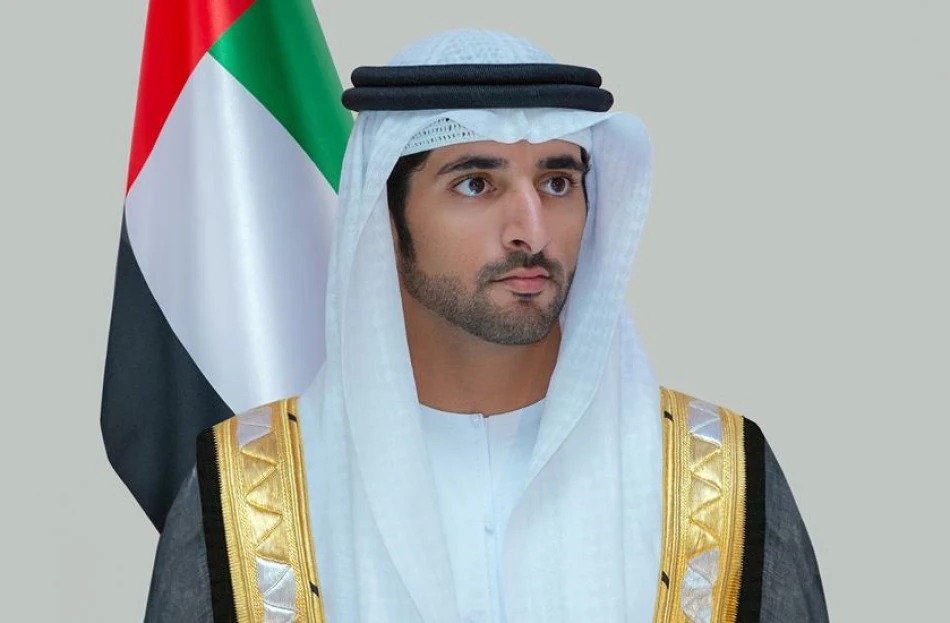
Crown Prince Hamdan's Unwavering Loyalty: 'We Are the Union's Children, Faithful to Its Covenant'
Dubai Crown Prince Reaffirms UAE's Founding Vision on Union Pledge Day
Sheikh Hamdan bin Mohammed bin Rashid Al Maktoum, Crown Prince of Dubai and UAE Deputy Prime Minister, marked the nation's Union Pledge Day with a powerful message emphasizing continuity and commitment to the founding principles established over five decades ago. His statement underscores the UAE's unwavering dedication to the federal structure that has driven its transformation into a global economic powerhouse.
Historical Significance of the 1971 Union Agreement
The Union Pledge Day commemorates the pivotal moment in 1971 when founding fathers Sheikh Zayed bin Sultan Al Nahyan and Sheikh Rashid bin Saeed Al Maktoum, alongside other emirate rulers, signed the constitutional document that created the United Arab Emirates. This historic agreement merged seven separate emirates into a single federal state, establishing one of the Middle East's most successful political unions.
In his official statement on X (formerly Twitter), Sheikh Hamdan described the signing as "a historic moment that launched the journey of a nation that knows no impossibility." The Crown Prince emphasized how this foundational act created lasting institutions that have anchored the country's remarkable development trajectory.
Strategic Implications for Regional Leadership
Economic Diversification Success
The UAE's federal model has proven exceptionally effective in balancing individual emirate identities with collective national interests. This approach has enabled the country to diversify beyond oil dependency more successfully than many regional peers, with non-oil sectors now contributing approximately 70% of GDP.
Dubai's emergence as a global financial hub and Abu Dhabi's strategic investments in renewable energy and technology sectors exemplify how the federal structure allows specialized economic development while maintaining national cohesion.
Comparative Regional Analysis
Unlike other Gulf Cooperation Council states that remain more centralized, the UAE's federal system has created competitive advantages through emirate-level innovation. Dubai's business-friendly regulations and Abu Dhabi's sovereign wealth fund strategies operate within a unified national framework, creating synergies that single-city states like Singapore achieve through different mechanisms.
Future-Oriented Governance Model
Sheikh Hamdan's pledge to remain "loyal to the union's covenant" signals continuity in the UAE's governance approach as it navigates global economic shifts. The emphasis on building "a better and more beautiful future for our people" aligns with the UAE's Vision 2071 strategy, which aims to make the country the world's best nation by its centennial.
This commitment becomes particularly significant as the UAE positions itself as a bridge between East and West, hosting COP28 climate negotiations, expanding its space program, and developing artificial intelligence capabilities. The federal structure provides stability for long-term strategic planning while allowing individual emirates to pursue specialized advantages.
Investment and Market Implications
For international investors and businesses, the Crown Prince's reaffirmation of federal unity provides crucial political stability assurance. The UAE's consistent governance model has attracted over $20 billion in foreign direct investment annually, with the federal framework enabling both local emirate flexibility and national-level international agreements.
The emphasis on continuity particularly benefits sectors requiring long-term planning, including renewable energy projects, infrastructure development, and financial services expansion. As regional geopolitical tensions persist, the UAE's stable federal model offers a reliable platform for international partnerships and investments.
Most Viewed News

 Sara Khaled
Sara Khaled






